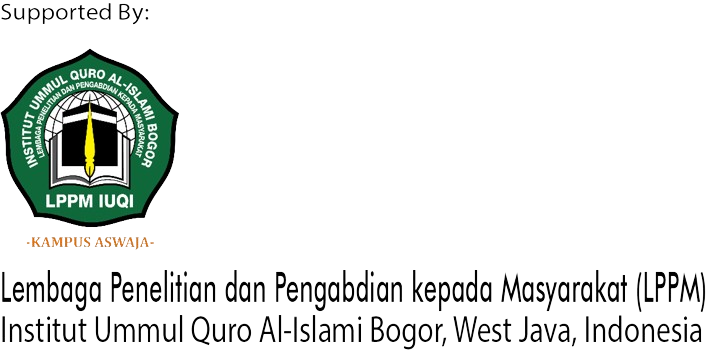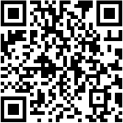EFEKTIVITAS PEMBELAJARAN PENDIDIKAN AGAMA ISLAM (PAI) PADA SISWA KELAS VIII DI SMP TERPADU AL-ITTIHADIYAH BOGOR
DOI:
https://doi.org/10.51192/almubin.v6i01.487Keywords:
Effectiveness, Islamic Religious Education, LearningAbstract
National Education aims is to form a generation who has good intelligent, faith and noble morals. To realize this national education goal, one of them is through Islamic religious learning. This Islamic Religious Education. aims to educate and direct students become good moslem, tobe obedient servant and have noble character as individuals, family members, communities, citizens of nation and of the world. However, the achievement of the goals of Islamic Religious Education is highly dependent on the effectiveness of the learning carried out by a teacher during the process of teaching and learning activities at school. Therefore this research was carried out with the aim to know out the effectiveness of learning Islamic Religious Education and the factors that influence it occur in eighth grade at the Al-Ittihadiyyah Integrated Junior High School, Bogor. This research is a qualitative research with a case study approach, in which data were collected using structured interviews and passive participatory observation, and collecting relevant documentation as secondary data. Then Data analyzed by techniques the Miles and Huberman model. Based on the results of the study, it can be concluded that the learning effectiveness of Islamic Religious Education in Eighth grade at Al-Ittihadiyyah Integrated Junior High School, Bogor is categorized as good based on achievement of indicators of learning effectiveness such as accuracy in preparing learning programs, use of media and learning resources in the process of teaching and learning activities, establishing good interaction between students and teachers, as well as the implementation of learning evaluations which include the cognitive, affective and psychomotor domains on a regular basis. However, there are a number of things that should be of concern, namely the low level of mastery and cognitive ability. This result can be seen from the average student learning outcomes which are still under the standar minimum. The factors that influence the effectiveness of learning Islamic Religious on studens in this school, such as insufficient of resources and learning media, classes that are not conducive, inadequate internet access, then lack of intelligence and learning motivation student
References
Aminudin, Aliaras Wahih, dkk, Membangun Karakter dan Kepribadian melalui Pendidikan Agama Islam, Yogyakarta: Graha Ilmu, 2006.
Chotimah, Chusnul, dan Muhammad Fathurrohman, Paradigma Baru Sistem Pembelajaran dari Teori, Metode, Model, Media, Hingga Evaluasi Pembelajaran, Yogyakarta: Ar-Ruzz Media, 2018.
Echols, John. M. dan Hasan Syadily, Kamus Inggris-Indonesia, Jakarta: PT Gramedia Pustaka Utama, 1990
Faryadi, Qais, Pedoman Mengajar Efektif Teori dan Model Pembelajaran, Bandung: PT. Remaja Rosdakarya, 2017
Fathurrahman, Arif, 2019, Peningkatan Efektivitas Pembelajaran Melalui Peningkatan Kompetensi Pedagogik dan Teamwork, Jurnal Manajemen Pendidikan Vol.7, No.2, Juli 2019 P-ISSN 2302-0296 E-ISSN 2614-3313.
Gunawan, Ary H, Sosiologi Pendidikan: Suatu Analisis Sosiologi tentang Pelbagai Problem Pendidikan, Jakarta: Rineka Cipta, 2010
Hamalik, Oemar, Proses Belajar Mengajar, Jakarta: Bumi Aksara, 2001.
Jauhar, Mohammad, Implementasi Paikem dari Behavioristik sampai Konstruktivistik, Jakarta: Prestasi Pustakaraya. 2011.
Karwono dan Heni Mularsih, Belajar dan Pembelajaran serta Pemanfaatan Sumber Belajar (Depok: PT. Rajagrafindo Persada, 2018), hlm 20.
Miarso, Yusuf Hadi, Menyemai Benih Teknologi Pendidikan, Jakarta: Kencana, 2004
Patoni, Ahmad, Metodologi Pendidikan Agama Islam, Jakarta: Bina Ilmu. 2004.
Priansa, Donni Juni, Pengembangan Strategi & Model Pembelajaran Inovatif, Kreatif, dan Prestatif dalam Memahami Peserta Didik, Bandung: Pustaka Setia, 2017.
Rohmawati, Afifatu, 2015, Efektivitas Pembelajaran di kelas A2 TK Miftahul Huda Kecamatan Turen Kabupaten Malang, Jurnal Pendidikan Usia Dini, Vol 9 Edisi 1, April 2015
Sagala, Saiful, Administrasi Pendidikan Kontemporer, Bandung: Alfabeta, 2005
Steers, Richard M, Efektivitas Organisasi, Yogyakarta: Pustaka Pelajar, 1999.
Sugiyono, Metode Penelitian; Kuantitatif, Kualitatif dan R&D, Bandung: Alfabeta, 2017
Suharto, Kamus Umum Bahasa Indonesia, Surabaya: Pt. Indah 1995.
Supriyono, Sistem Pengendalian Manajemen, Semarang: Universitas Diponegoro, 2000.
Tim Penyusun Kamus Pusat Pembinaan dan Pengembangan bahasa (P3B), Departemen Pendidikan dan Kebudayaan, Kamus Besar Bahasa Indonesia, Jakarta: Balai Pustaka,1995.
Uno, Hamzah B. dan Nurdin Muhamad, Belajar dengan Pendekatan PAIKEM, Jakarta: PT. Bumi Aksara. 2012.
Wahyuddin, 2018, Efektivitas Pembelajaran Matematika Melalui Pembelajaran Aktif Tipe Everyone is a Teacher Here (ETH) Pada Siswa Kelas X SMA Negeri 8 Takalar, Jurnal Al Khawarizmi, Vol. 2, No. 1, Juni 2018, ISSN 2549-3906 E-ISSN 2549-3914.












